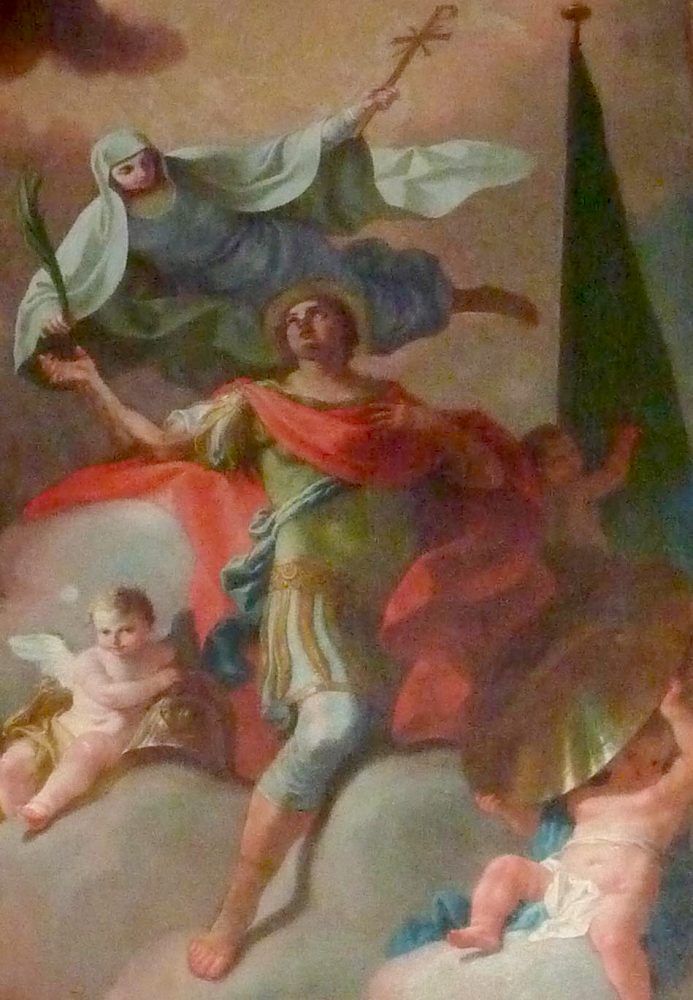Rev. José Mario O. Mandía
It is said that in 212 AD, Origen visited the Christian community in Rome. In one of the churches there, he was impressed by a sermon On the Praise of our Lord and Savior, delivered by a Roman priest named Hippolytus.
Hippolytus had declared in one of his works that he was a disciple of Saint Irenaeus. Saint Irenaeus was a disciple of Saint Polycarp. And Saint Polycarp, in turn, was a disciple of Saint John the Evangelist.
Like his teacher Irenaeus, Hippolytus also wrote a work against heresies entitled Philosophumena or Refutation of All Heresies where he argues particularly against Gnosticism. He also wrote Apostolic Traditions, which describes the ordination rites, the reception of catechumens into the Church, and the celebration of the Eucharist in the early Church.
Though he lived in Rome, Hippolytus (c 170-235) was probably not a native Roman. He was very well acquainted with Greek philosophy and mystery cults. “His theological attitude and the relation of his doctrine of the Logos to that of the Greek theologians prove his Hellenistic training and connection with Alexandria. He is Greek in expression as well as in thought and he is, in fact, the last Christian author of Rome to employ that language. His literary output is comparable in volume to that of his contemporary Origen but not in depth and independence of thought. He is more concerned with the practical questions than scholarly problems” (Quasten, II, pp 163-164).
Rigorism drove Hippolytus to accuse Pope Saint Zephyrinus (c. 199–217) of being too lenient to heretics promoting modalism. Modalism teaches that there is only one Person in God who puts on three different “masks” as Father, or as Son, or as Holy Spirit. In other words, when we say “Father,” “Son,” or “Holy Spirit”, we are actually referring to the same Person who has three different names.
His opposition to modalism led him to employ the concept of the Logos in order to distinguish the Father from the Son. This position, however, led him to subordinationism, a doctrine that considers the Son and the Holy Spirit as inferior to the Father in nature.
Rigorism also led Hippolytus to condemn Pope Callixtus (218-222/223) when the latter allowed absolution of more serious sins such as adultery. Hippolytus believed that the Church should be composed exclusively of the just. A group of faithful who followed him elected him pope. Thus, Hippolytus would become the first antipope in history (217/218–235).
Hippolytus kept his position during the pontificates of Saints Urban I (222–230) and Pontian (230–235). During the persecution of Christians by the Roman emperor Maximinus, he was sent in exile to the mines of Sardinia in 235. The reigning pontiff, Pope Pontian, was also sent in exile and it was in Sardinia where Hippolytus was reconciled with the Pope. Hippolytus then exhorted his supporters to come back to the Church and resigned. Pope Pontian resigned as well, thus giving way for the election of a new pope. Saint Anterus (235-236) was elected Roman Pontiff, thus effectively ending the schism.
Pontian and Hippolytus were both martyred in 235. Pope Saint Fabian (236-250) had their corpses brought to Rome where they were solemnly interred on 13 August 236 or 237. The remains of Pope Saint Pontianus were laid to rest in the papal crypt of Saint Callixtus, while those of Saint Hippolytus were buried in a cemetery along the via Tiburtina. The cemetery was eventually named after him. The Church celebrates the feast day of Saints Pontian and Hippolytus on 13 August.
The story of Saint Hippolytus reminds us to be wary of the dangers of human pride, but it also shows us how humility and God’s grace can win in the end.


 Follow
Follow


